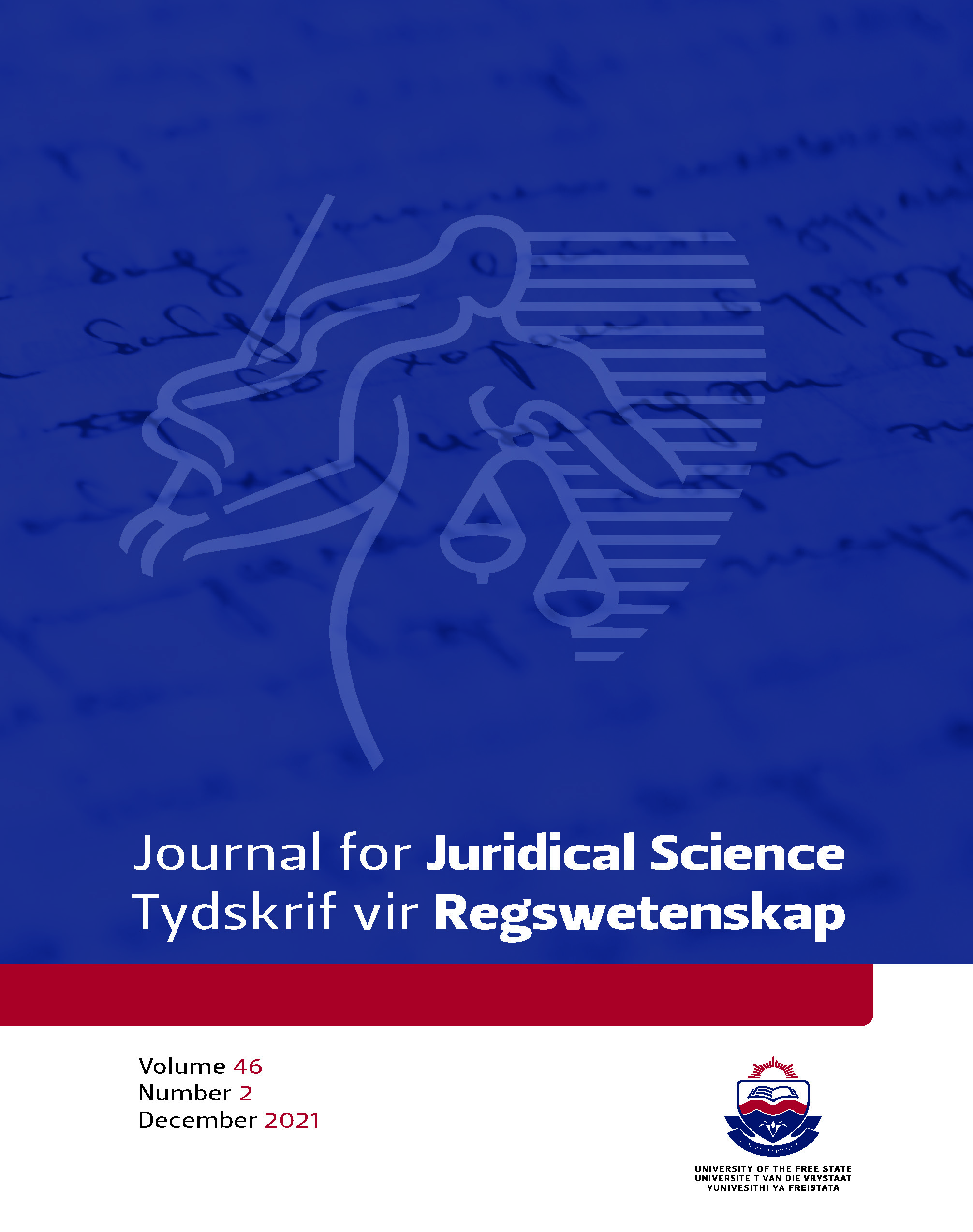Police officers' discretion and its (in)adequacy as a safety valve against unnecessary arrest
DOI:
https://doi.org/10.18820/24150517/JJS46.i2.4Abstract
The Supreme Court of Appeal has ended the recent uncertainty on whether there is a need for the fifth jurisdictional fact in the process of arrest. The result is that South African law is back at the well-known four jurisdictional facts that must be present before a lawful warrantless arrest may take place. This article assesses whether, after the demise of the fifth jurisdictional fact, police discretion can adequately protect the right to liberty. The discussion starts with a contextual background outlining the role of the jurisdictional facts and the emergence and demise of the fifth jurisdictional fact. This is followed by an outline of the legislative framework applicable to arrest, pointing out that the law bestows wide discretion on police officers in the exercise of their duties, including securing the court attendance of accused persons. Relying on relevant decided cases, it is submitted that the courts focus on the police discretion exercised at the point of arrest, not in the process preceding that stage (for example, the choice of method). The central submission is that, given that the only viable pre-court appearance protective mechanism against unnecessary arrests is the proper exercise of police discretion, focus on the exercise of discretion at the point of arrest is not the most prudent and/or effective approach in the quest to protect the right to liberty.
Downloads
##submission.downloads##
Published
Issue
Section
License
Copyright (c) 2021 B Tshehla

This work is licensed under a Creative Commons Attribution 4.0 International License.




